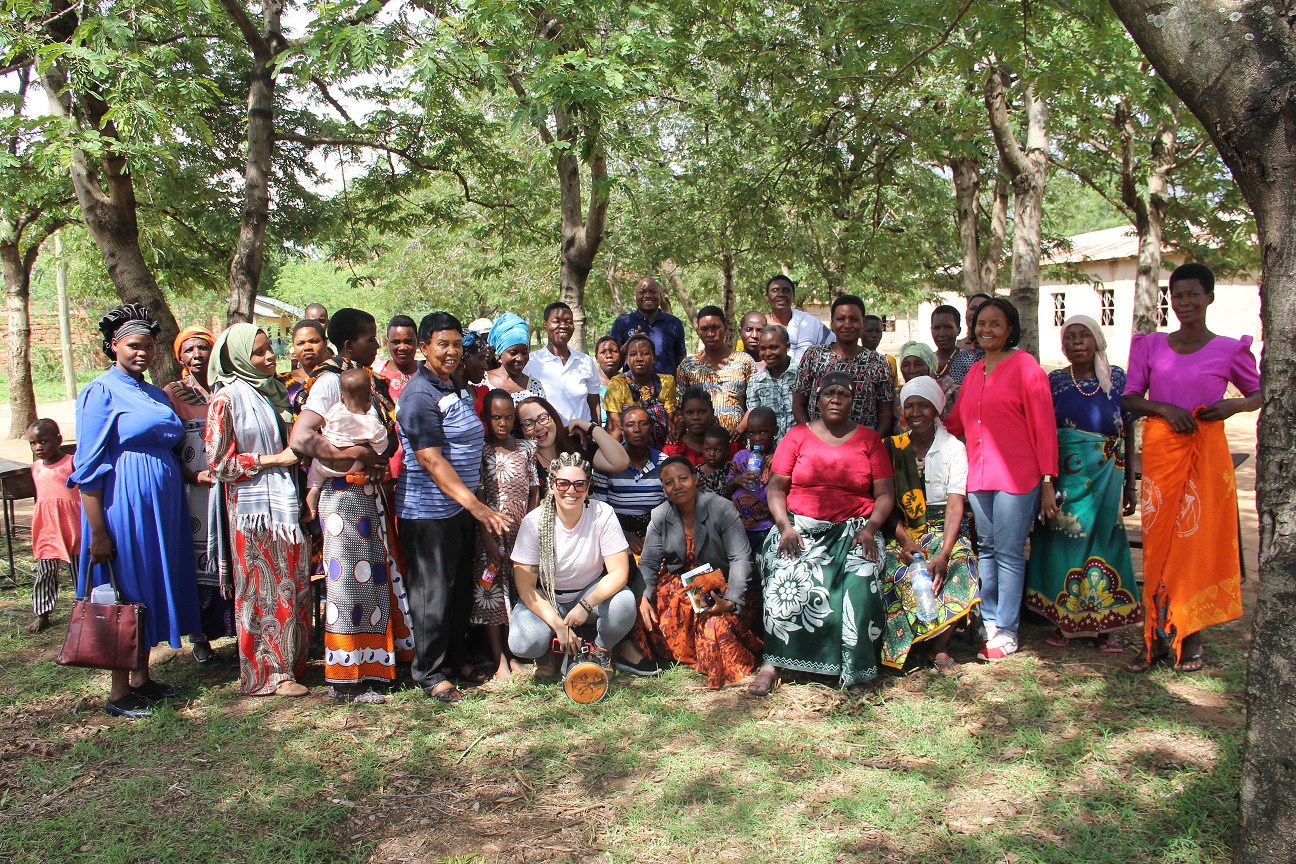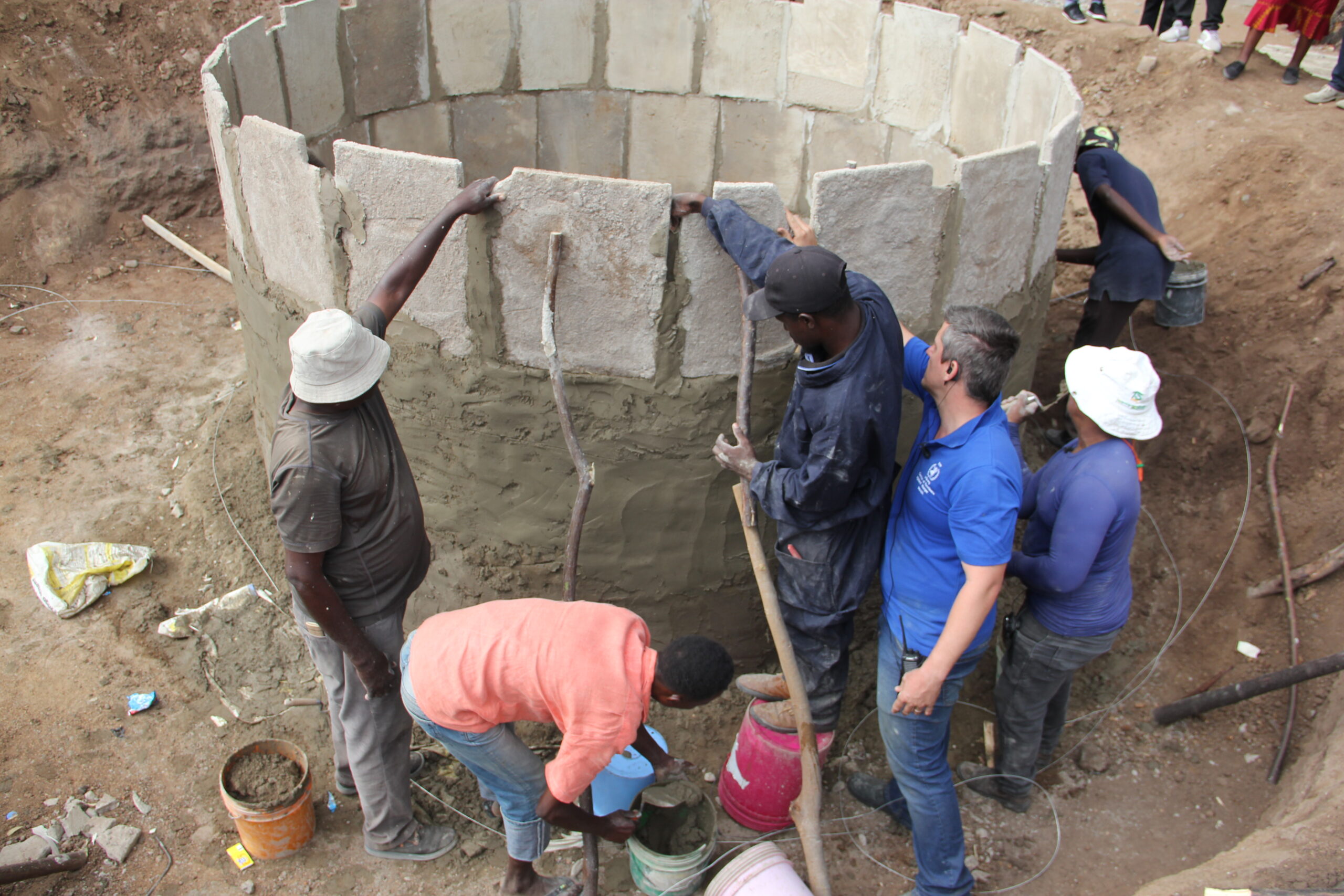
The technical team of the Beyond Cotton project of the WFP Centre of Excellence against Hunger Brazil, as well as representatives of the Federal University of Campina Grande (UFCG) were on a mission in Tanzania between the 21st November and December 1st, to support local farmers by presenting workshops and knowledge sharing. The activities took place in the districts of Misungwi, Kwimba and Magu and had the support of the Ministry of Agriculture of Tanzania.
On this year’s November 22nd, an execution partnership agreement was signed between the WFP office in Tanzania, the Tanzania Cotton Board (TCB) and the Tanzania Agricultural Research Institute (TARI), with the goal of reaffirming the commitment to strengthening local agriculture and increasing the productivity of cotton and food crops.
Some activities were also developed aiming to improve agricultural practices related to the planting of cotton and associated crops, such as the assembly and demonstration of the use and functionality of equipment like the motor cultivator and seeder. The activity showed farmers a gain in time and productivity ten times greater than handling and manual planting, which will allow farmers to take better advantage of the rainy season.
The technical teams delivered pluviometers (meteorological devices used to collect and measure the amount of precipitated liquids or solids) to be installed in the field and help measure the rainfall in the districts of Kwimba and Magu. Another activity carried out was a rural diagnosis, with the presence of about 50 women from the Magu community. The diagnosis involved mapping the food groups consumed by the district’s population and how they are prepared, consumed and purchased.
After better understanding the local food context, Vanille Pessoa, nutritionist and UFCG professor, pointed out some nutritional solutions that can be followed daily and demonstrated the best food associations. “A good example is not to mix dairy products with iron rich food such as beans, to avoid competition between nutrients”, she pointed out. Carrying out this activity will enable WFP to work together with the Ministry of Health and the Ministry of Agriculture of Tanzania in the development of strategies against malnutrition, nutritional deficiency, and obesity.
Nutritionists also gave workshops with guidelines on good eating practices in the Kwimba district, where participants were able to learn more about local food consumption and processing practices, such as dehydration of food in the shadow, cooking time of food and sanitation techniques.
Construction of Cisterns

Agricultural Engineer and Professor from UFCG, Dr. Luderlândio Andrade, with the support of technicians from the Beyond Cotton project, gave workshops on the construction of plate cisterns for the communities, a Brazilian technology that consists of a reservoir that collects and stores rainwater. The cisterns can store 16,000 liters (about 4226.75 gal) of water and are being built close to the schools. The idea is for the system to provide drinking water for human consumption, for schools and for irrigation of school gardens, which will make it possible for children to no longer need to walk about forty minutes in search of water. By the end of December, it is estimated that at least 12 cisterns will be built in the districts.
In addition, the Agricultural Engineer and technical assistant at the Centre of Excellence, Thaynara Dias, presented the main precautions that must be taken when using rainwater from the cistern for human consumption for local residents. “It is important that the first rains are used to wash the roofs and then rain collection begins, so that water free of impurities is stored. Before consuming it, boil the water or store it in transparent pet bottles and expose them to the sun for twelve hours for sterilization”, she said.




